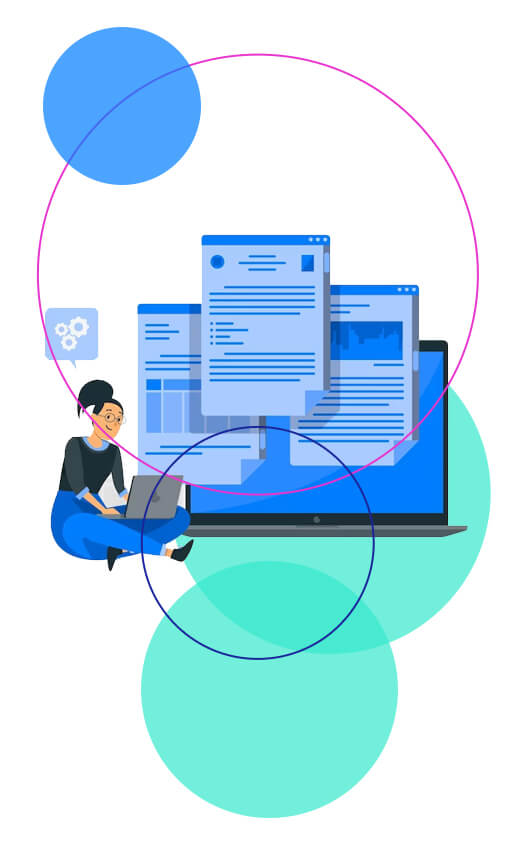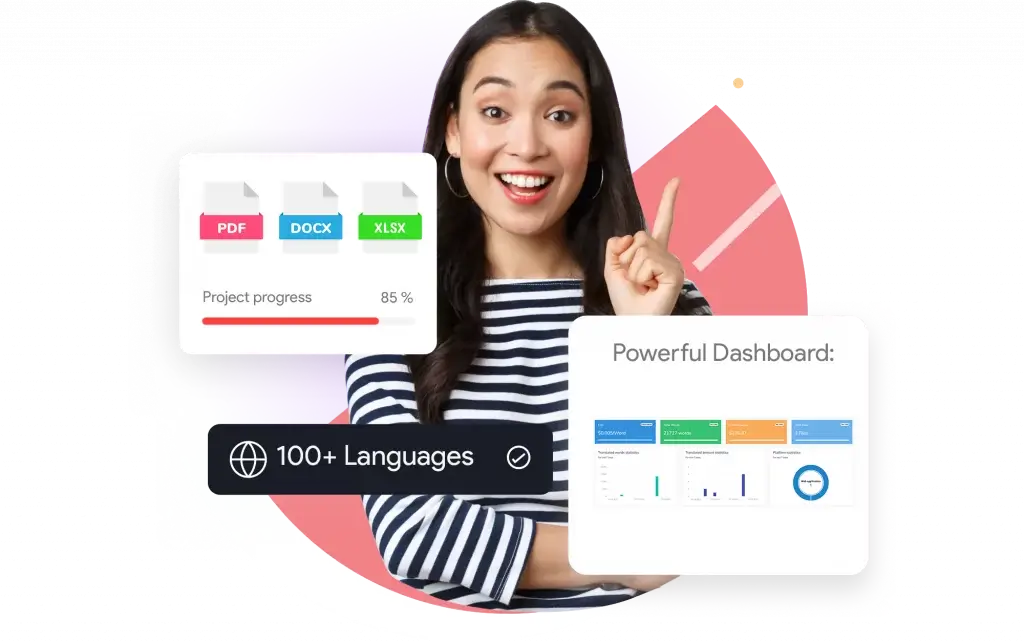
Trusted By
Leading organizations around the world trust Doc Translator







Elevate Your Retail & E-Commerce Experience
In the retail and ecommerce industry, there are many types of documents that may need to be translated into foreign languages. Some examples include:
- Product descriptions: Retail and ecommerce companies often need to translate product descriptions and other product information into multiple languages in order to reach a global audience.
- Marketing materials: Marketing materials such as brochures, advertisements, and social media posts may need to be translated in order to effectively reach customers in different countries.
- Website content: If a retail or ecommerce company has a website that is available in multiple languages, all of the content on the site will need to be translated. This includes everything from the home page and navigation menu to product pages and checkout process.
- User manuals: If a retail or ecommerce company sells products that come with user manuals, those manuals will need to be translated into the languages of the countries where the products are sold.
- Customer service materials: Companies that offer customer service in multiple languages will need to translate a variety of materials such as FAQs, support articles, and email templates.
Meet DocTranslator!
DocTranslator is specifically designed to by-pass the desktop firewalls and platform dependability. Web-first online translation service for documents is developed to work in any modern web-browser whether it is Google Chrome, Mozilla Firefox or Apple Safari. It even works in Internet Explorer (god bless ;-)).
DocTranslator has the following advantages:
- It is always on. You can login to it from any browser whether it is a desktop or mobile (no app required)
- It supports MS Word (.docx), MS Excel (.xlsx) and Adobe PDF (.pdf)
- It offers a free tier for documents under 1,000 words (no PDF though!)
- It is priced super competitively for a machine translator: $0.005/word. That’s 200% cheaper than industry average.
- Average turn-around time is only minutes. Compare that to several days of human output!

How to translate your document?
STEP 1
Register at DocTranslator.com
STEP 2
Verify your email address
STEP 3
Upload your document
STEP 4
Select original and target languages
STEP 5
Translate!
What is retail and e-commerce ?
The retail industry is a vital component of the economy, responsible for selling goods and services to consumers. This sector includes various businesses, ranging from small independent retailers to large chain stores and online marketplaces.
Ecommerce, or “electronic commerce,” pertains to the buying and selling of goods and services over the internet. This covers online stores, as well as the use of the internet to facilitate traditional brick-and-mortar retail transactions.
The retail and ecommerce industry is a significant contributor to numerous economies globally, encompassing a broad range of businesses that offer diverse products and services to consumers. It is a constantly evolving industry, characterized by the emergence of new technologies and business models.
What is the difference between video game retail ?
The retail industry is the sector of the economy that is responsible for the sale of goods and services to consumers. This includes a wide range of businesses, from small independent retailers to large chain stores and online marketplaces. Retail businesses may sell physical products, such as clothing, electronics, or home goods, or they may offer services, such as haircuts, car repairs, or massages. Retail businesses may operate physical storefronts or they may be purely online.
Ecommerce, short for “electronic commerce,” refers specifically to the buying and selling of goods and services over the internet. This includes online stores, as well as the use of the internet to facilitate traditional brick-and-mortar retail transactions. Ecommerce businesses are typically online-only, although some retail businesses may also have an online presence in addition to their physical storefronts.
So, the main difference between the retail and ecommerce industries is that the retail industry encompasses all forms of selling goods and services to consumers, both online and offline, while ecommerce specifically refers to the buying and selling of goods and services over the internet.
What languages should I Translate my website?

When determining which languages to translate your website into, there are a few key factors to consider:
- Your target audience: If you know that a significant portion of your target audience speaks a particular language, it may be worth translating your website into that language.
- The potential for growth: If you are targeting a country or region with a large population and a growing economy, translating your website into the local language could be a good way to tap into that market.
- The competition: If your competitors are already offering their websites in multiple languages, it may be necessary to do the same in order to remain competitive.
- Your resources: Translation can be a time-consuming and costly process, so it is important to consider whether you have the resources to translate your website into multiple languages.
Ultimately, the decision of which languages to translate your website into will depend on your specific business goals and target audience. It may be helpful to start by translating your website into the languages of your largest target markets and then expand from there.
What language is most in demand for translators?
When it comes to the most in-demand language for translators, there’s a lot to consider. From the industries they serve to the languages they know, translators have a lot on their plates. But fear not, because we’ve rounded up some of the top languages that are consistently in high demand for translators.
First up, we have Spanish. With over 500 million speakers worldwide, it’s no surprise that Spanish is the second most spoken language in the world. It’s especially popular in the Americas and parts of Europe, making it a top pick for translators.
Next, we have French. With millions of speakers around the globe, it’s one of the official languages of the United Nations and other international organizations. As a result, translators fluent in French are highly sought after.
Chinese is another language that’s in high demand. Spoken by a massive chunk of the world’s population, both Mandarin and Cantonese are crucial languages in the business world. Translators who know Chinese are definitely in high demand.
German is spoken by over 100 million people worldwide and is an important language in the European Union and in global business. German translators are definitely a valuable asset.
Finally, we have Arabic. Spoken by hundreds of millions of people across the Middle East and North Africa, it’s a significant language in the business world. So if you’re a translator fluent in Arabic, you’re definitely in luck.
While it’s impossible to say which language is the absolute most in demand for translators, these languages are definitely the heavy hitters. Keep them in mind if you’re looking to specialize in a language that’s in high demand!

Get 1000 Words Free!
Sign up today and discover the power of DocTranslator and what it can do for your financial institution.
